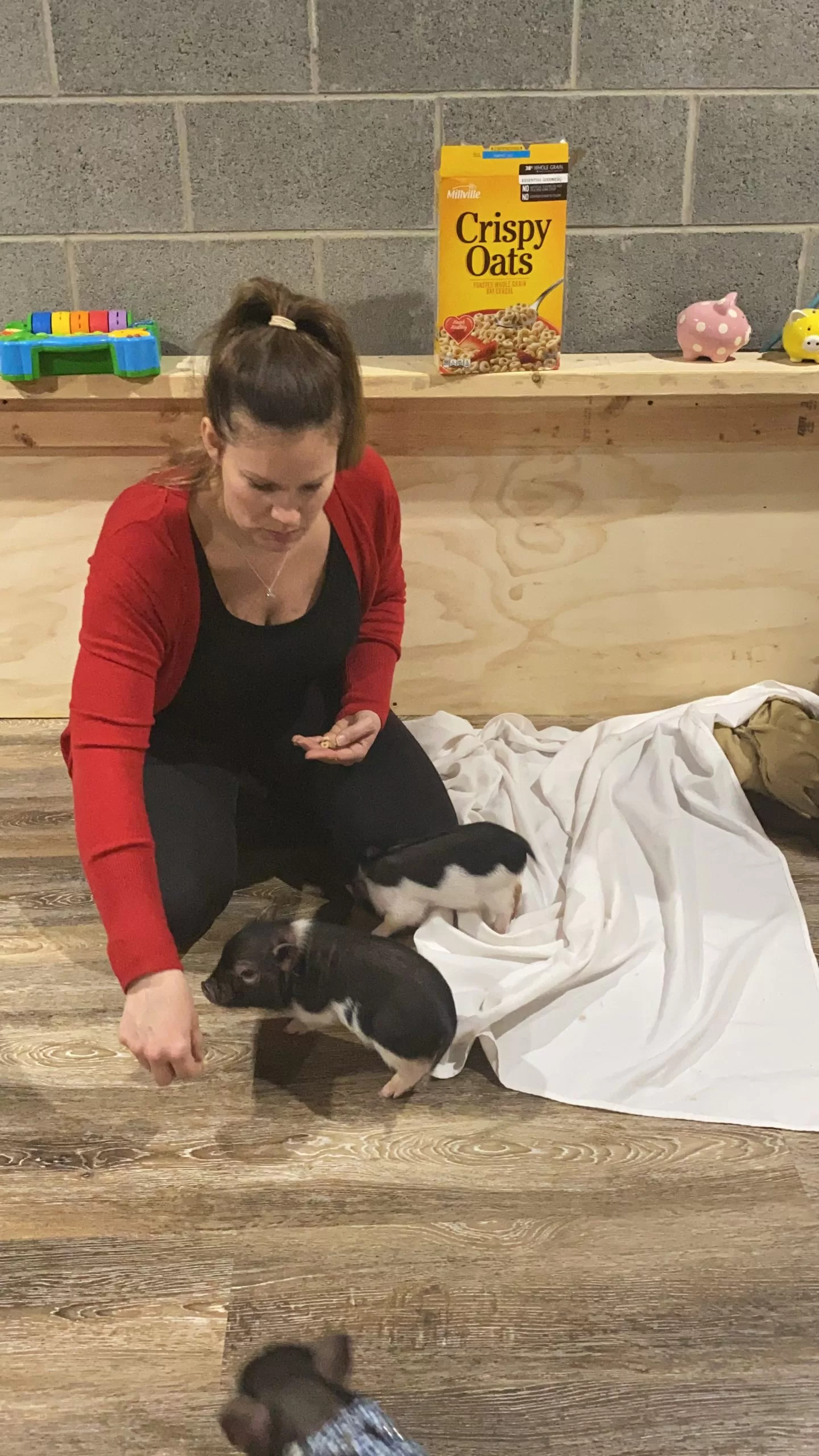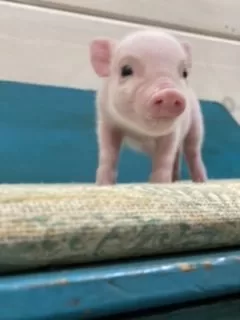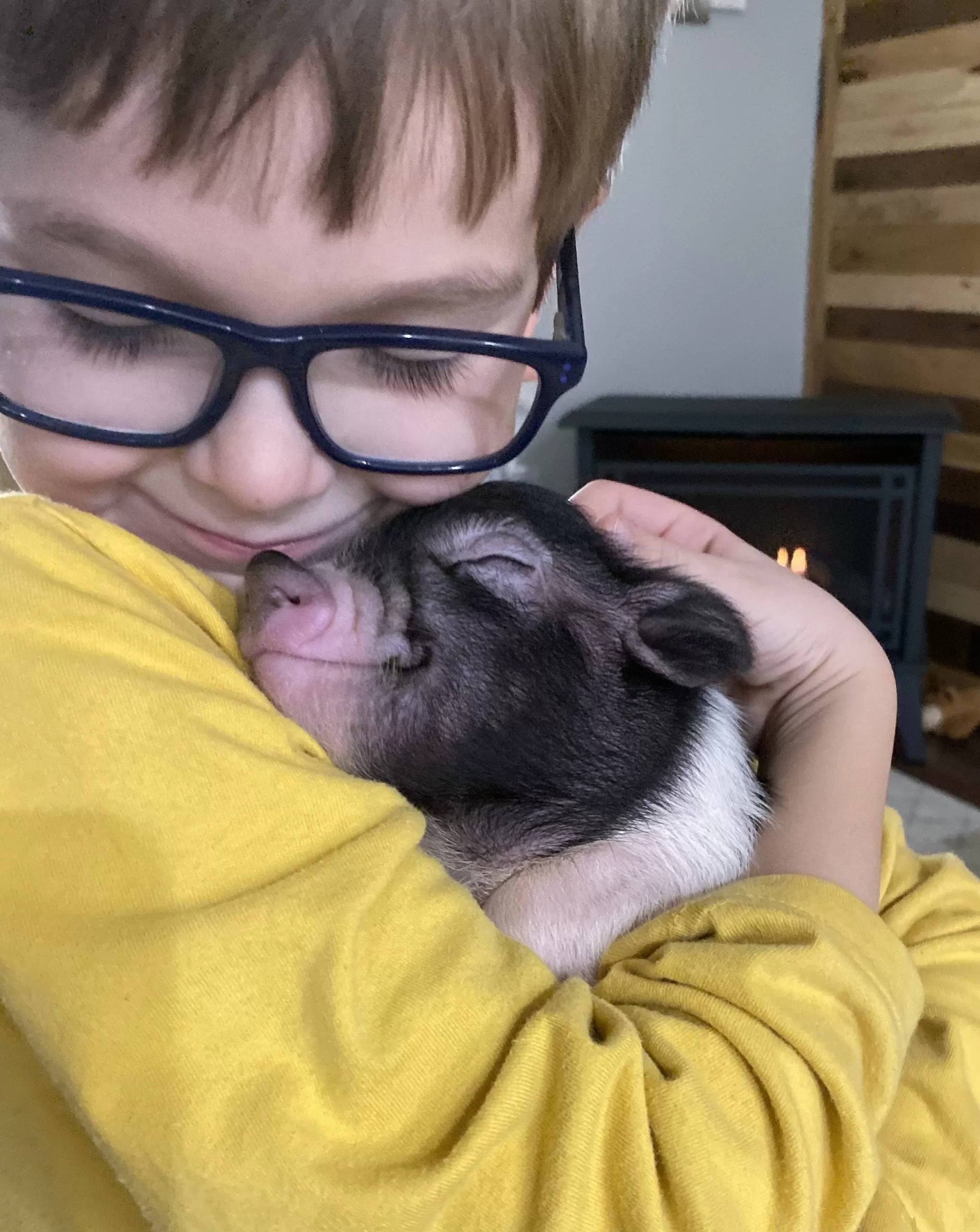
How Can I Tell if a Breeder is Ethical?
Choosing a breeder is the single most important decision when it comes to adding a pet to your family. The right breeder will provide you with a healthy, social, happy piglet to become a part of your family. The breeder you choose will make this the best or worst possible experience, so choosing an honest, ethical, kind, well respected breeder is essential.
But how can you tell if a breeder is honest and ethical? Don’t be afraid to ask questions and check them out on social media. The following are some things to look for when checking out a breeder.
An Ethical Breeder
A good breeder is knowledgeable. They should be able to answer all of your questions and provide as much information as you need without hesitation. They should provide you with lots of resources BEFORE you decide to add a piglet to your family.
Its important to visit the site. You want to see the parents in person and the conditions the piglets are raised in. If you are too far away for a personal visit, the breeder should be willing to provide real time pictures and videos. These should be readily available on social media. Look for transparency in a breeder. If it feels like they are hiding things, keep looking.
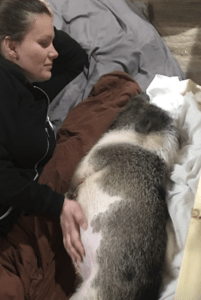
We have a very close relationship with each of our pigs.
An ethical breeder will love and care for their adult pigs as much as the babies. They should know all their pigs well – each one’s health history, likes and dislikes, personality and temperament. If a breeder is not willing to show the parents living area, proceed with caution. If they are willing to show you where their adult pigs live, don’t be overly critical. Adult pigs generally live in some kind of barn. Barns are dusty, dirty and can be stinky at times. As long as you can tell that the animals are loved and cared for and the building is well maintained and the stalls are cleaned out regularly, the breeder is a good one. It’s not always easy to keep up in the fast paced world we live in.
Family education is a must. A good breeder will make sure potential families understand the pros and cons of pig ownership and have reasonable expectations. Priorities should be educating families before they decide, helping them prepare once they have decided and supporting them for the years to come.
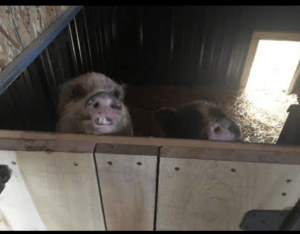
Our adult piggies live in a nice heated building. We interact with them every day.
Piglet Care
The health of each piglet and the betterment of the breed should be of highest concern – especially over money in the pocket. That means that a good breeder won’t use misleading terms such as: pixie, nano, teacup, micro, micro mini, apartment or tiny when describing their piglets. Because they understand that health is much more important high volumes, they won’t have so many litters at a time that they can’t monitor each piglet. There price wont’ be ridiculously high (I have seen piglets for sale at exorbitant prices – $3,000 and higher) and it will include many things. To me, the following are nonnegotiable things that should be included with each piglet. Dewormed, vaccinated, microchipped, fixed, social (for real), litter box trained (for real), medical records, breeder guarantee (stating they do not inbreed, starve or breed young pigs), taught manners, welcome packet of information, crate, blanket, food, support for the live of the pig, pickup day discussion and make you sign a statement saying that if they can not keep their pig for any reason, they will contact the breeder first.
The following is a list of things that I feel give a breeder extra credit, so to speak. These things will make the transition to family life much easier. Piglets that are raised inside a home with a family allows the piglets to be desensitized to household noises. Things like talking, laughing, tv sounds, vacuum, washing machine, doors slamming and stomping are very scary when you are all of a sudden surrounded by them. Crate and harness training makes travel much less stressful for all involved. When a piglet has been taught basic tricks and is used to working for their food, they are much less likely to be aggressive and bossy. A few baths while young allows them to get used to the idea of water. In general they don’t like baths, but with time and repetition, they learn that a bath is safe and can be very beneficial due to all the extra snacks.

Summary
When it comes time to finding a breeder, do your homework and take your time. Choosing a breeder that is ethical and knowledgeable is extremely important. It determines whether your experience with a new piglet will be great or awful. So ask lots of questions and make sure you are supporting a good breeder.
For more information about this topic, check out my YouTube channel and my social media accounts.

